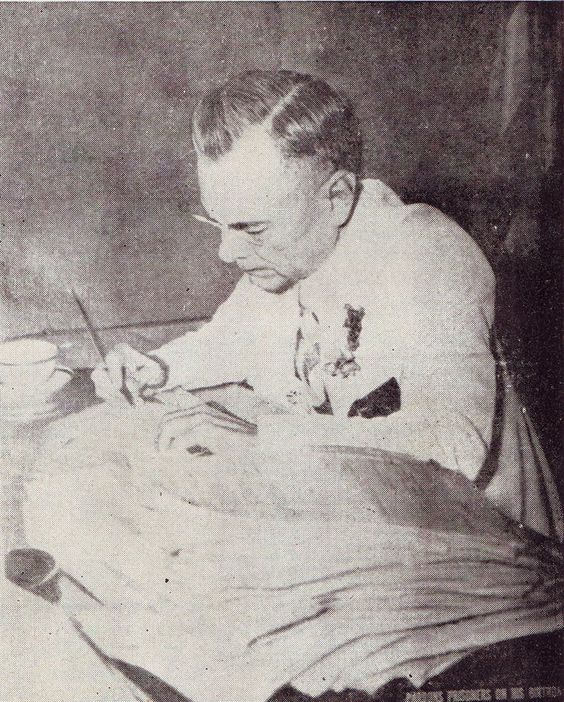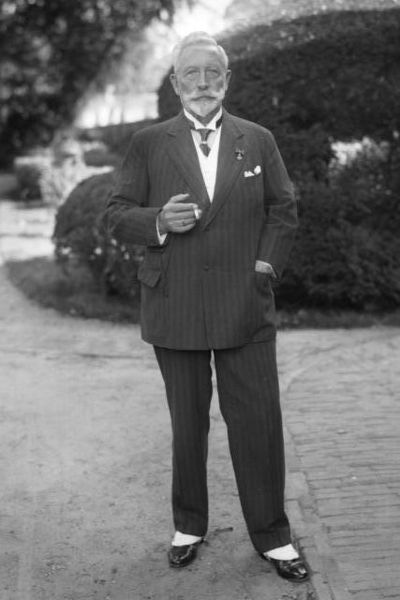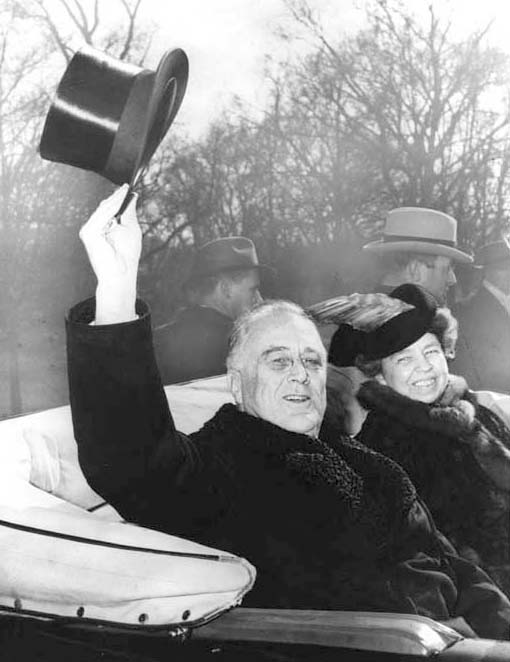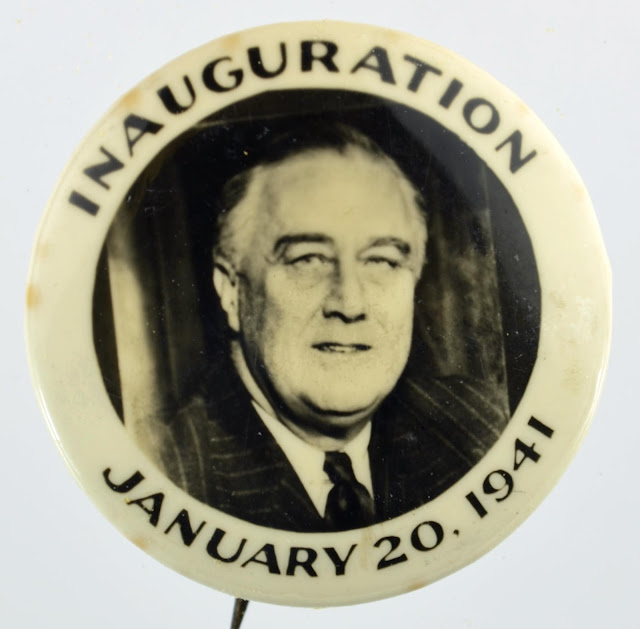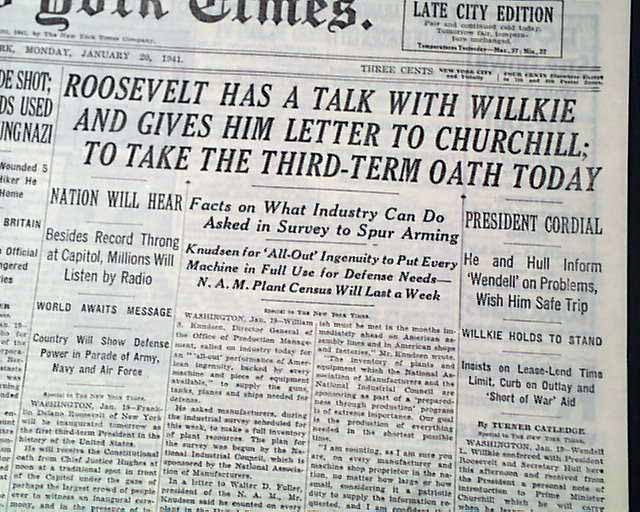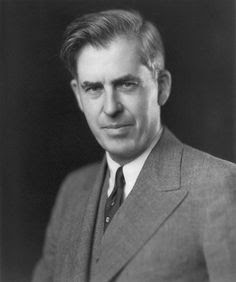Friday 4 July 1941
 |
| A Panzer IV at Lepel being pulled off a bridge with a chain. The panzer slipped off the bridge and broke the bridge railing. (Federal Archive, Bild 146-1994-009-33). |
General Halder notes in his war diary that the panzers are outrunning the infantry, something Hitler already has tried to prevent by temporarily halting the panzers. Halder notes that "special measures will be necessary to bridge the gap." Overall, though, Halder notes that "on the whole, we discern distinct withdrawal movements, covered by armored counter-thrusts." He concludes optimistically that:
The situation supports the assumption that the enemy does not have sufficient forces left for a sustained defense of the line running from the old Russo-Estonian frontier along Dvina and Dniepr to the south. This theory is borne out also by a Russian order, intercepted yesterday, to the effect that the Dvina river will be held only by groups concentrated at the crossings.In the Far North sector, Operation Arctic Fox, the joint German/Finnish operation toward Salla and ultimately the Murmansk railway, has stalled. The problem is that the Germans do not have sufficient forces at the point of attack just west of Salla. Army of Norway commander General Dietl moves some troops up from 163rd Infantry Division in Southern Finland (the division controversially moved across Sweden on the railway line) and asks the Finns to make a flank attack to restart the offensive. This will take a couple of days, and until then, the operation is on hold.
In the Army Group North sector, advance units of General Erich Hoeppner's 4th Panzer Group reach the vicinity of Ostrov. This marks the pre-1939 Russian frontier. A little further south the panzers meet strong opposition, but Army Group commander Field Marshal von Leeb brings up infantry in trucks and sustains the advance.
In the Army Group Center sector, the 19th Panzer Division of General Guderian's 2nd Panzer Group reaches the Western Dvina River at Rogachev. Guderian's men immediately seize a bridgehead from Soviet 51st Rifle Corps of 22nd Army. The Germans quickly move the 18th Motorized Division into the bridgehead. A little further north, General Hoth's 3rd Panzer Group crosses the Beresina River. Hoth reports to OKW that he is down to 50% of combat strength.
The Soviets are taking advantage of the stormy weather which hit on 2 July to plan a counterattack along the main Moscow road. To do this, they mass troops in the vicinity of Smolensk. However, this will take them a couple of more days.
Field Marshal Fedor von Bock, commander of Army Group Center, moves his headquarters to Baranovichi. General Günther von Kluge, whom von Bock has put in command of Hoth's and Guderian's panzer groups, moves his headquarters to Minsk.
In the Army Group South sector, the panzers reach Buchach, Ukraine and take it without opposition after the Soviets abandon it. The Hungarian 3rd and 4th Armies reach the northern rim of the Carpathian Mountains. The Soviet forces are retreating to the east within the Pripet Marshes. Heavy fighting breaks out in the Mogilev-Podolski area.
 |
| The Jewish residents of Storow or Slarov, Ukraine digging their own graves prior to their executions, 4 July 1941 (Federal Archive, Bild 183-A0706-0018-029). |
To the northeast, General Slim's Indian troops prepare to advance west from Deir ez-Zor. Their next objective is Raqqa, a road junction to the northwest on the road to Aleppo.
Off the coast, light cruisers Naiad and Ajax lead a destroyer force to shell Vichy French positions.
Edwards, already partially disabled from earlier injuries and further wounded during this raid, ultimately receives the Victoria Cross for his leadership during the raid.
There also is a Circus mission during the day to Choques.
After dark, RAF Bomber Command attacks Brest (88 aircraft) and Lorient (47).
The Luftwaffe sends 75 aircraft on scattered missions over Great Britain after dark.
East African Campaign: It is the rainy season in Abyssinia. The Italians slowly are being rounded up by the British forces. General Pietro Gazzera, the Governor of Galla-Sidama and the new acting Viceroy, is trapped at Kulkaber (Culqualber) with a large body of troops by Free Belgian forces under Major-General Auguste Gilliaert and has no chance to escape.
Battle of the Baltic: Following a close escape on 3 July from one Finnish submarine, the Vetehinen, Soviet freighter Viborg (Vyborg) sees its luck run out. Finnish submarine Vesikko torpedoes and sinks Viborg east of Gogland Island. There is one death.
 |
| U-69 commander Kptlt. Jost. Metzler. |
U-69 (Kptlt. Jost Metzler) is returning to France after a lengthy patrol and is out of torpedoes, but it spots a freighter off the west coast of Africa. Metzler cannot resist attacking, so he orders the U-boat to the surface. His men use the deck guns to sink 2918-ton British freighter Robert L. Holt (Master John Alexander Kendall). This sinking sometimes is listed as taking place on either 2 or 3 July 1941. Nobody survives, 56 men perish.
The Luftwaffe bombs and sinks Royal Navy trawler Akranes off Bridlington Bay, Yorkshire. There are no casualties.
The Luftwaffe bombs and sinks 362-ton British freighter Balfron a few miles off Ravenscar, Yorkshire. There are four deaths.
Local 454-ton vessel Goldfinch hits a mine about ten miles off St. Bees Head, Solway Firth. The ship is taken under tow to Whitehaven.
British 363-ton freighter Lunan hits a mine and sinks off Cardiff in Bristol Channel. There are five deaths and one survivor.
Royal Navy ocean boarding vessel Cavina stops 5522-ton German blockade runner Frankfurt in the mid-Atlantic hundreds of miles southwest of the Azores. Rather than allow the Frankfurt to be captured, the crew scuttles it. There are 26 survivors and 20 deaths.
Minelayer HMS Plover lays minefield BS.67 in the North Sea.
Royal Navy aircraft carrier HMS Furious leads a convoy of empty troops ships north from Gibraltar to the Clyde.
Convoy OG-67 departs Liverpool bound for Gibraltar.
Canadian minesweeper HMCS Cowichan is commissioned.
 |
| Jews of Storow or Slarov, Ukraine being forced to dig their graves prior to their execution on 4 July 1941. The overseers in this picture are ethnic Germans local to the area. (Federal Archive, Bild Y 01-3861). |
The RAF spots Vichy French auxiliary cruiser St. Didier off Adalia, Turkey. The St. Didier is disguised as a Turkish merchant ship. The RAF planes proceed to sink the St. Didier.
The Luftwaffe attacks Tobruk.
The RAF based in Malta sends five Wellington bombers to raid Tripoli, causing some damage.
It is a quiet day on Malta, with no air raid alarms. Royal Navy submarine HMS Osiris arrives and offloads 70 tons of bulk petrol in Marsaxlokk. Submarine Utmost also makes port after its patrol.
 |
| Bedford QLD GS (1941) (Alfvan Beem via Wikipedia). |
Partisans: Joseph Broz aka Tito is named Military Commander by the Central Committee of the Yugoslav Communist Party. He issues a call to Yugoslavians to revolt against German/Italian rule. Meanwhile, the Chetniks, a completely separate Yugoslavian partisan group led by monarchist Draža Mihailović, attacks a police station in Serbia.
British Military: Orde Wingate, recently demoted and removed from his dismantled Gideon Force command in Abyssinia, attempts suicide by stabbing himself in the neck. The authorities decide to repatriate him to England. The incident may be attributed to side effects of Atabrine that Wingate is taking to combat a bout of malaria. Wingate's military career is not destroyed, however, because he has personal support from highly placed individuals within the British government.
Soviet Military: The NKVD arrests General of the Army Dimitry Pavlov, disgraced former commander of Western Front. He faces the death penalty for failing to stop the German invasion.
Iceland: Patrol Squadron Seventy Two (VP-72) begins operating PBY-5 Catalinas from Reykjavik, Iceland. These are in anticipation of the upcoming occupation of Iceland by US Marines to replace British troops. The Marines already are at sea, having left Argentia at dawn on 2 July. They are due to arrive at Reykjavik by 7 July. The Icelandic government is not thrilled at being occupied, but the prime minister reluctantly has cabled President Roosevelt that it is "in the best interest of Iceland."
 |
| The corpse of a dead German soldier, 4 July 1941 (Federal Archive, Bild 146-1981-151-15A). |
Einsatzkommando 9 (a unit of Einsatzgruppen B) in partnership with Lithuanians, begins shooting Jews in the pits of Ponary, a holiday destination before the war that is 10 km (6 miles) from Vilna. In addition, Germans arrive at the Synagogue on Zydowska (Zydu) Street in Vilna and demand that the Shamash (beadle), Haim Meir Gordon, form a governing group. This is the birth of the "First Judenrat," which is established on 24 July.
In one of many similar incidents all along the front, Soviet Army deserters ransack Jewish homes in Buchach after the Red Army retreats and before the Wehrmacht marches in later in the day. Joining them are various local people looking to take advantage of a temporary period of lawlessness. Many Jews lock themselves in their homes and welcome the arrival of the German troops as restoring order. Locals quickly sense the mood of the new occupiers and resume their depredations against the Jews, sometimes robbing them and kidnapping them as slaves.
At Tarnopol, German and local Ukrainian forces begin a pogrom against Jews. The Germans begin shooting at Jews in the street and invading Jewish homes. The reason for this incident appears, from local accounts, to be related to German anger at Soviet executions of prisoners at the Tarnopol prison - presumably including German POWs. The occupiers force Jews to dig up the courtyard of the prison in search of corpses and then carry them out for burial elsewhere.
At the Polish city of Lwów, several units composed of the SS, police and field gendarmerie under the command of SS officers arrest professors of the higher academic institutions at their homes. The SS men don't make distinctions and simply arrest all men over 18 in the homes (many adult children live with their parents). According to the sole survivor, Professor Groër, the arrested people are taken to the Abrahamowicz dormitory and told to stand against a wall for over an hour. The victims are taken to a cellar and shot one by one. When it is Groër's turn, he is asked why he, of German descent, did not leave the town when the Soviets (Bolsheviks) took over in 1939. He replies that he considers himself Polish and, in any event, the Soviets would not have allowed him to leave due to his university position. The only reasons Groër is spared are that he is married to a titled English woman, which for some reason impresses the executioners, and also has prewar contacts within the SS. This incident is a good example of Holocaust executions that are not based on the victims being Jewish.
British Homefront: Coal is in short supply because the miners have been called to active service duty. Minister of Labour Ernest Bevin now requires ex-miners to register for recall. Until production is increased, domestic users of coal are restricted to one ton a month of coal, coke or any related fuel. While this does not affect most private homes, it is a serious inconvenience to hotels and offices.
The British Communist Party, recognizing the reality of the German invasion of the Soviet Union, belatedly decides to support the war effort.
 |
| Lou Gehrig's memorial plaque at Yankee Stadium that is dated 4 July 1941 but actually was unveiled on 6 July 1941 due to a rained-out game. |
I tell the American people solemnly that the United States will never survive as a happy and fertile oasis of liberty surrounded by a cruel desert of dictatorship.He urges sacrifice to preserve freedom.
Failed Presidential candidate Wendell L. Willkie also gives a speech over the NBC radio network. He urges free trade and a form of globalism:
We must see to it that the trade areas of the world are enlarged, that artificial barriers between men are removed, so that there will be a constantly rising standard of living for all men who work, in which men of all races and creeds and religions and nations can live in peace and harmony, in which the just fruits of enterprise will find their just fulfillment, in which children may look forward to a constantly better world, free of hatred and bitterness and narrow isolationism and of economic degradation.He concludes his speech by hopefully predicting the end of tyranny before the next fourth of July.
The New York Yankees wish to honor the recently deceases Lou Gehrig by unveiling a monument in Memorial Park, directly behind center field, today. He is the second player to be so honored. Gehrig is not buried there - his grave is in Kensico Cemetery in Valhalla, New York - but this is considered "his place" by many fans. Unfortunately, today's doubleheader against the Senators is rained out, so the date of the unveiling is moved to 6 July. Rainchecks for today's rained-out games become prized collector's items because they bear the Iron Horse's picture.
Paramount film "Caught in the Draft" is released. It stars Bob Hope and Dorothy Lamour, both taking a break from the "Road" films with Bing Crosby. Capitalizing on the war situation, the comedy featured Hope as a movie star who wants to evade the draft by getting married, but winds up with a colonel's daughter - and in the army. The film goes out of its way to make the military seem lenient and understanding in order to aid the war effort. The film opens at the Paramount in New York and becomes only the second film in the theater's 15-year history to run for five weeks.
 |
| A Rain Check for the 4 July 1941 Memorial Game honoring Lou Gehrig. The ceremony finally took place on 6 July 1941. |
July 1941
July 1, 1941: US TV Broadcasting Starts
July 2, 1941: MAUD Report
July 3, 1941: Stalin Speaks
July 4, 1941: Pogroms in Eastern Europe
July 5, 1941: Germans on Schedule
July 6, 1941: Australians Attack Damour
July 7, 1941: US Marines in Iceland
July 8, 1941: Flying Fortresses In Action
July 9, 1941: British Take Damour
July 10, 1941: Sword and Scabbard Order
July 11, 1941: Cease-fire in Syria and Lebanon
July 12, 1941: Anglo/Russian Assistance Pact
July 13, 1941: Uprising in Montenegro
July 14, 1941: Katyusha Rocket Launchers in Action
July 15, 1941: Smolensk Falls
July 16, 1941: Stalin's Son Captured
July 17, 1941: Heydrich Orders Mass Executions
July 18, 1941: Twin Pimples Raid
July 19, 1941: V for Victory
July 20, 1941: The Man Who Wouldn't Shoot
July 21, 1941: Moscow in Flames
July 22, 1941: Soviet Generals Executed
July 23, 1941: Secret Plan JB 355
July 24, 1941: Operation Sunrise
July 25, 1941: US Naval Alert
July 26, 1941: Italian E-Boat Attack on Malta
July 27, 1941: MacArthur Returns
July 28, 1941: Auschwitz Exterminations
July 29, 1941: Rescue From Crete
July 30, 1941: Raid on Petsamo and Kirkenes
July 31, 1941: Final Solution Order
2020





